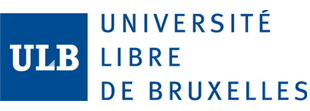WEBINAR Dulbea – Metices Between adaptation, corporatist interests and market logics: the dynamics of implementing EU employment policies regarding young jobseekers in Luxembourg Monday, October 5th, 2020, 2 pm to 3.30 pm CET
editSpeaker: Patrick Thill (Luxembourg Institute of Socio-Economic Research, Dulbea)
About the webinar
Youth unemployment rates in the EU increased dramatically during the international financial crisis since 2008. The European Commission proposed in its 2013 Recommendation on a European Youth Guarantee a ‘social partnership’ to combat youth unemployment, thereby shifting responsibilities to trade unions, employer organisations and associations both at the EU and national level. Luxembourg constitutes, due to its peculiar labour market characterised by a large number of cross-border workers, its coordinated market economy and law-embedded neo-corporatist collective bargaining instruments, a laboratory to study forms of policy appropriation processes. The policy area of youth unemployment serves the purpose of analysing how Luxembourg responds to peer pressure at the various interacting levels of the policy implementation cycle (EU, national, social).
The first part presents the objectives and methodology and situates the research in its socio-economic context. Based on a qualitative research framework with semi-directed expert interviews in Luxembourg and Brussels, the second part discusses critically dynamics between the involved actors (EU Commission, national government, EU social partners, etc.) by focusing on agendas, strategies of resistance and adaptation, as well as dynamics within bargaining arenas such as the Employment Committee EMCO, COREPER and EU social partners’ committees on youth and employment. The last part assesses if traditions of policy implementation and collective bargaining processes in Luxembourg are circumvented or reinforced, and what elements of resistance national stakeholders mobilise when downloading EU policy.
About the author
Patrick Thill is a researcher in LISER’s labour market department and a PhD student at Dulbea. He holds an MA in International Relations from the University of Warwick and a BA in English and Hispanic Studies from the University of London. Beyond his work as an expert for international institutions and project work, he is the national expert for Luxembourg in the European Centre of Expertise in the field of labour law, employment and labour market policy of the European Commission and in the Workers’ participation Europe network of the European Trade Union Institute. In 2014, he received funding from the Fonds National de la Recherche in Luxembourg to conduct his dissertation research. Research interests include: EU social dialogue, labour market policies, employment relations, youth unemployment.


